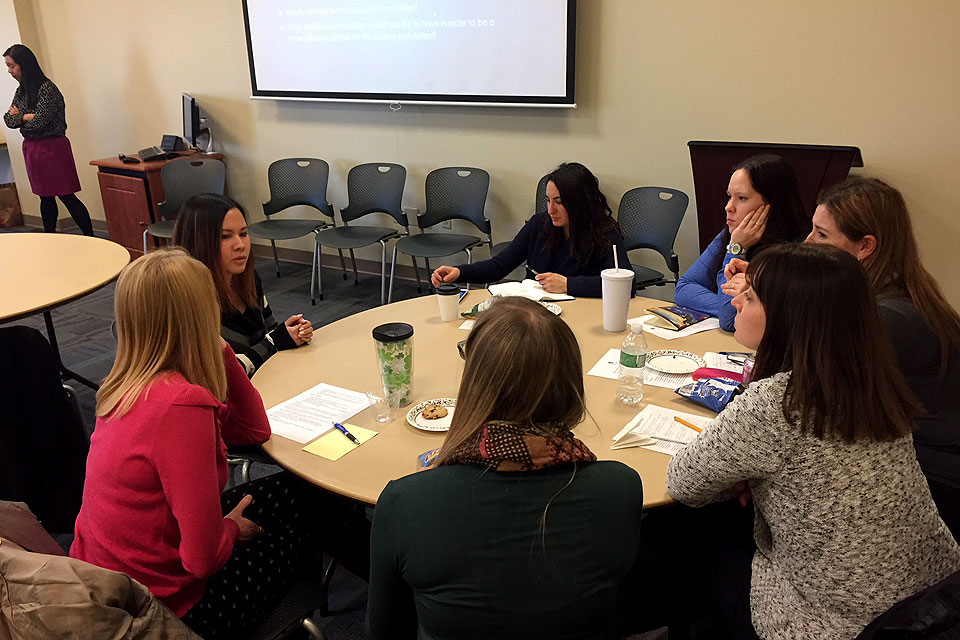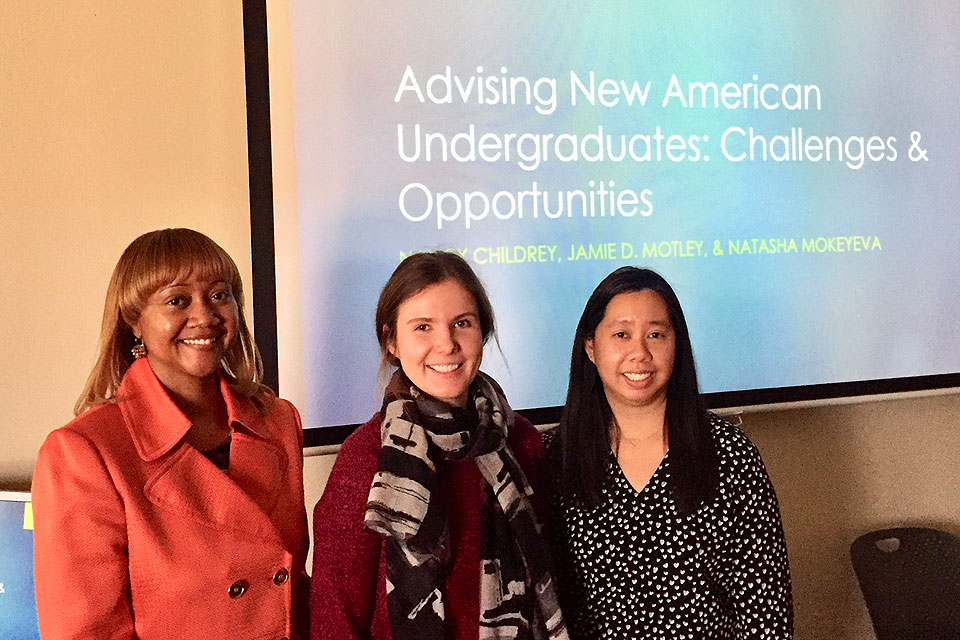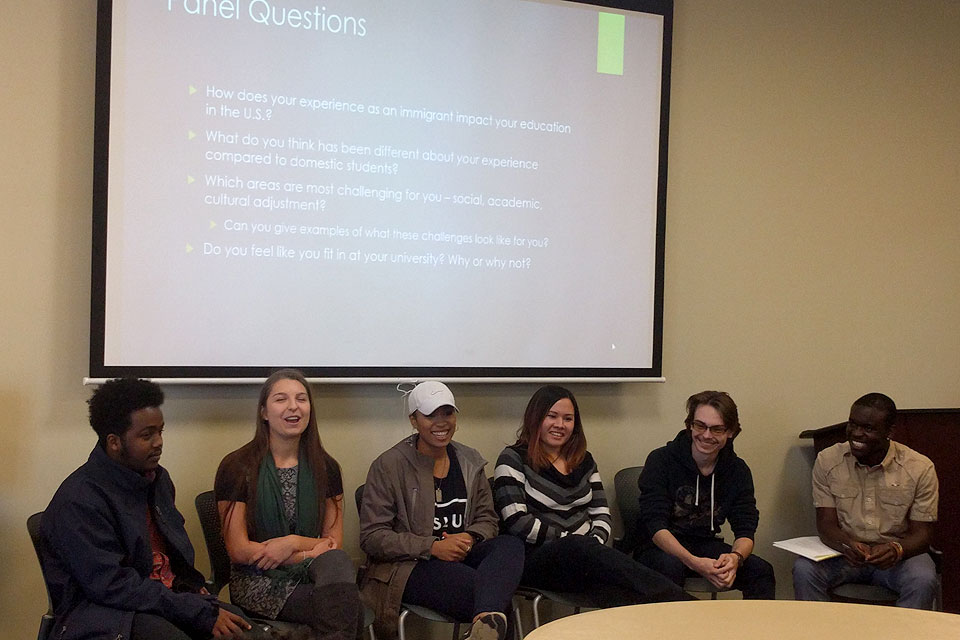Students, Advisors Come Together for Workshop on 'Advising New American Students'
SLU undergraduate and graduate students served as panelists during an advisor workshop, “Advising New American Undergraduates: Challenges and Opportunities,” held on Wednesday, Jan. 31, in the Busch Student Center.
The workshop was developed to address some of the adjustment issues that first- and second-generation immigrant students face as they enter and attend U.S. colleges and universities. These issues may be academic, cultural or social; depending on how long the students have been living in the U.S. and participating the educational system.
Several panelists said that some of the biggest adjustments they had to make in college have been in the classroom and in how they pursued their academic careers.
“Discussion and class participation may not come easily to immigrant students, because oftentimes discussion isn't used as a pedagogic method in other countries,” freshman Mehamed Abdi, a first-generation college student from Ethiopia, said. “Therefore, immigrant students may be hesitant to speak up and voice their opinions, for fear of seeming disrespectful or questioning authority.”
Junior Brian Barlay, a first-generation immigrant student from Sierra Leone, agreed with Abdi.
“The U.S. education system teaches you to think critically, which doesn't always translate well in other cultures, where the same behavior may be seen as questioning authority,” Barlay noted.
Differences in cultural norms between their country of origin and the U.S. can also impact immigrant students’ interactions with faculty, the panelists told the workshop participants.

“Sometimes it's unclear how to approach or address faculty, because the English language doesn't differentiate between a formal and an informal salutation or way of addressing someone,” senior Esther Chinwuko, a first-generation student of Japanese and Nigerian descent, who was born in Japan, told the group. Chinwuko noted that in Japanese schools, students bow to their teachers as a sign of respect.
“It's difficult to understand how to show respect and to translate your personal and culturally-motivated values related to respect in a culture and education system that doesn't account for such values as part of the language structure,” she added.
Junior Michael Borovik, whose family originates from Russia, spoke about ways American views of higher education and teachers differ from his experience. Senior Yoanna Ivanova, a first-generation college student from Bulgaria, and graduate student Lizzie Tran, a second-generation immigrant of Vietnamese descent, also weighed in on challenges students like them might face that many domestic students might not.
“Immigrant students have a lot more to deal with compared to a traditional domestic student – for example, helping family members who don't speak English, working on the side, trying to understand how the healthcare system works,” Ivanova explained.
“You learn to work hard and from an early age as a second-generation immigrant because you see what your parents have gone through and what they've sacrificed in order for you to be where you are - for example, in college,” Tran said.
The panelists offered suggestions for SLU’s academic advising community about ways to better support student immigrants, even when their immigrant status may not be evident in their official records. The panel suggested focusing on relationship building by being welcoming and asking thoughtful questions about a student’s background without making assumptions as a key starting point.
“Asking students if they speak other languages, instead of asking them about their [immigrant] status, may be a nice and a safe way to identify immigrant students on campus who may otherwise be invisible and feel like they don't belong,” Barlay said.
The panelists also agreed that having sessions for student immigrants and their families during SLU 101; being cognizant of their different learning needs; and making class recommendations and referrals for support services such as TRIO writing services based on those needs would be helpful. Abdi, for one, said he had participated in the TRIO-Support Services program at SLU and is able to take advantage of the individualized advising, counseling, standing tutoring and writing services that the program offers to its students.
The advising community’s Professional Development Committee sponsored the session. Nancy Childrey, Ph.D., Jamie. D. Motley, Ph.D., and SLU graduate student, Natasha Mokeyeva co-facilitated the workshop.
The workshop was designed to align to the mission of SLU’s advising community and its professional development aims.
“The purpose of the Professional Development Committee is to provide advisors with opportunities to collaborate with other units on campus to continue updating their knowledge of best practices for serving our students,” Justina Dodson, chair of the advising community’s Professional Development Committee, said. “Workshops like [this] session give advisors a unique perspective into the academic, social and cultural issues faced by our diverse population of students. Who better to teach us how best to develop our practices than the unique and talented students we serve?”



















